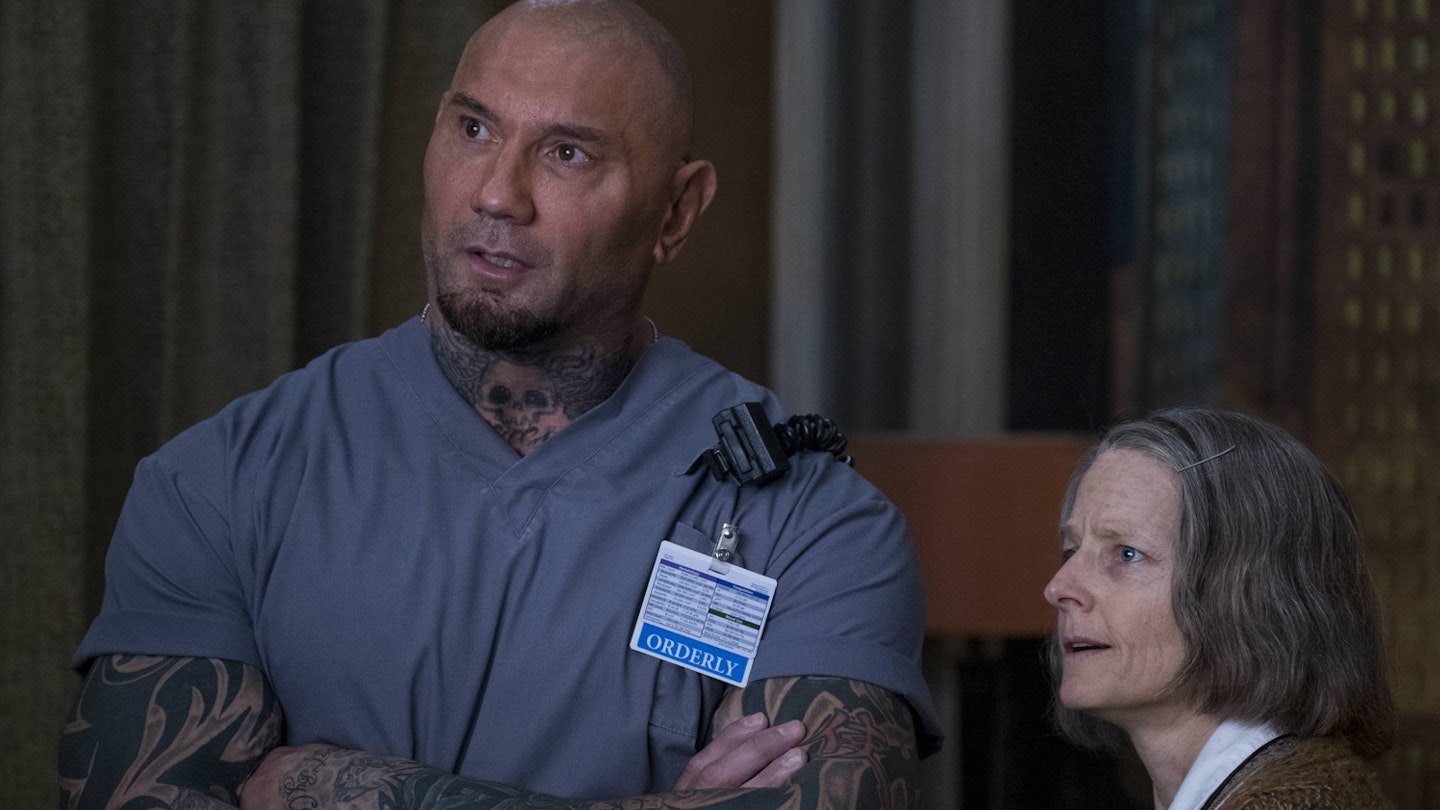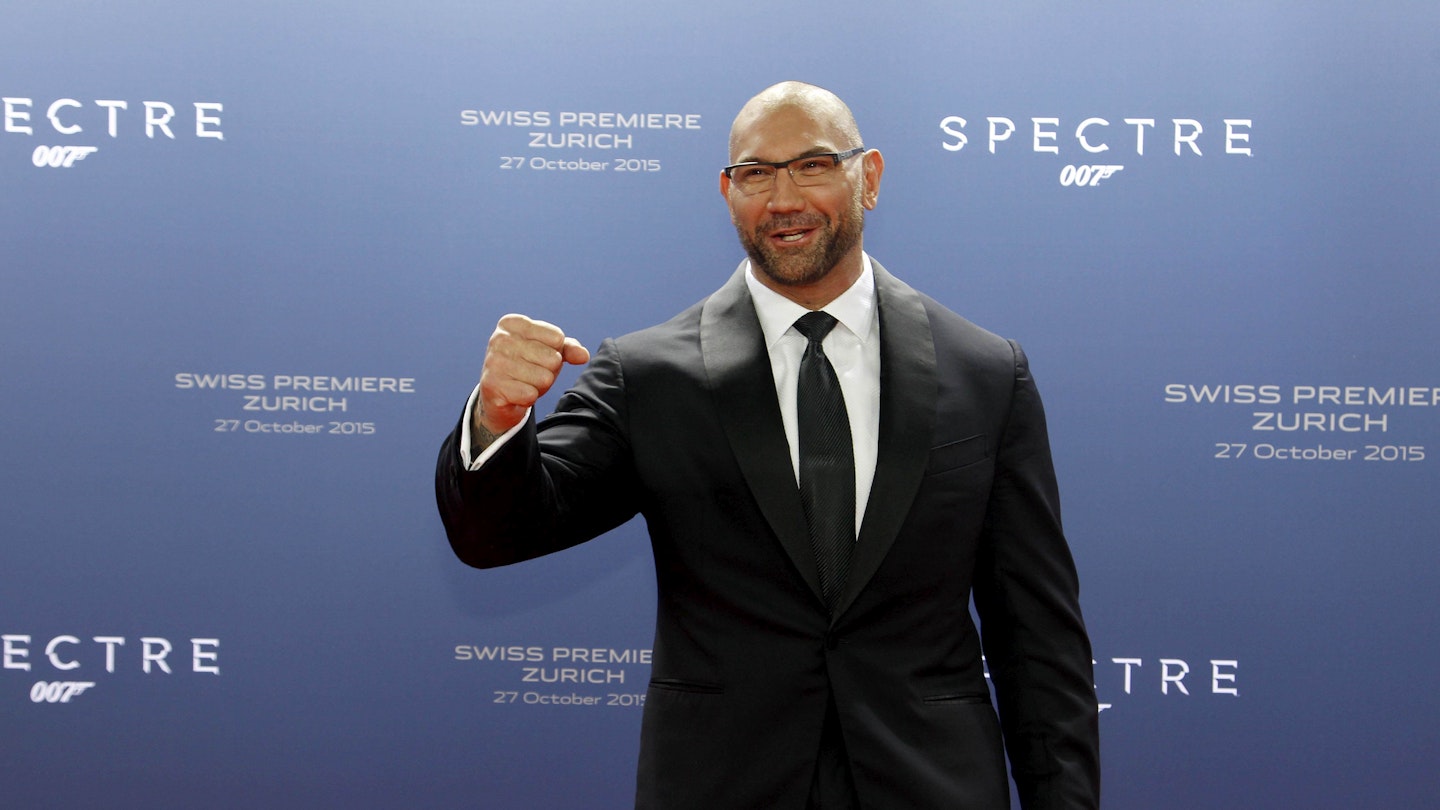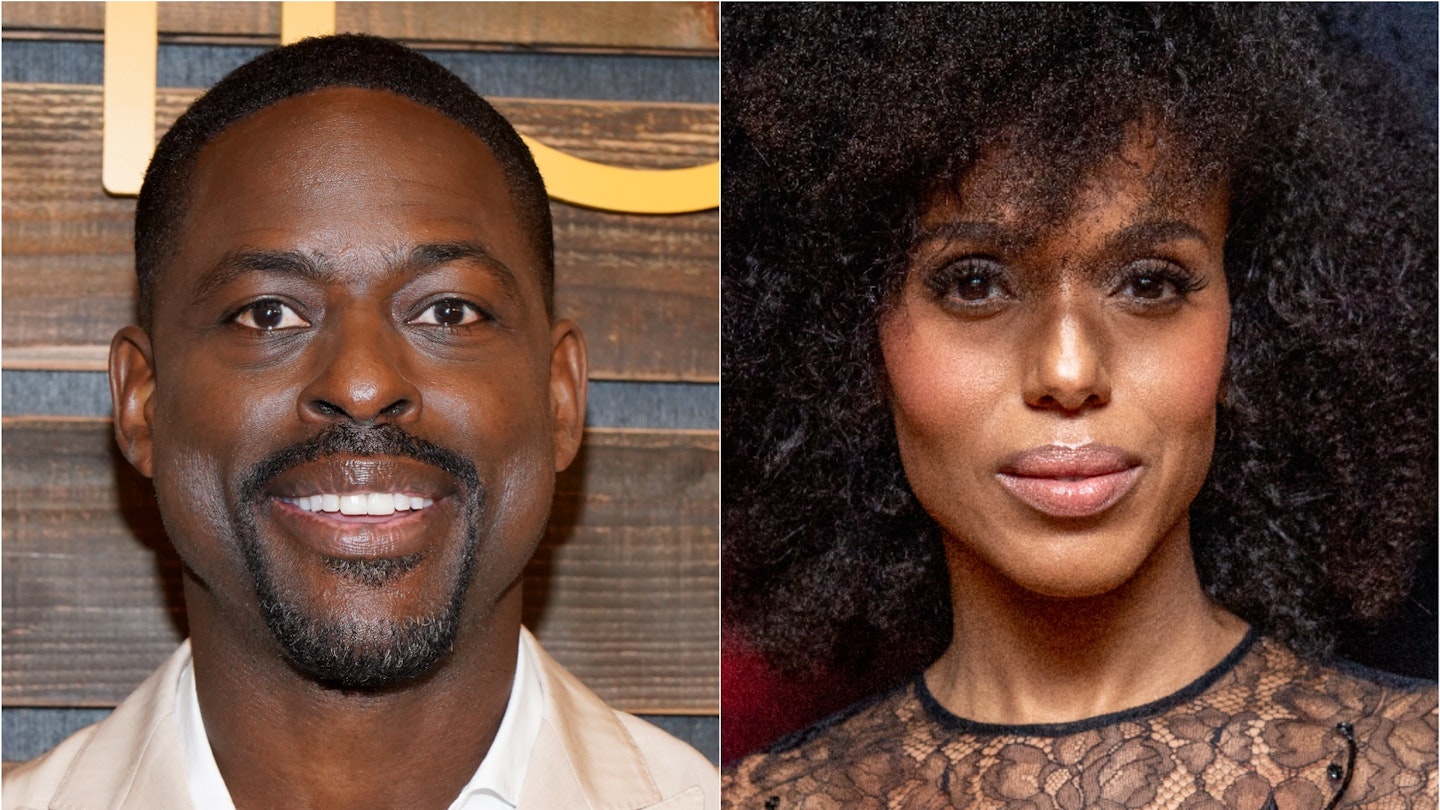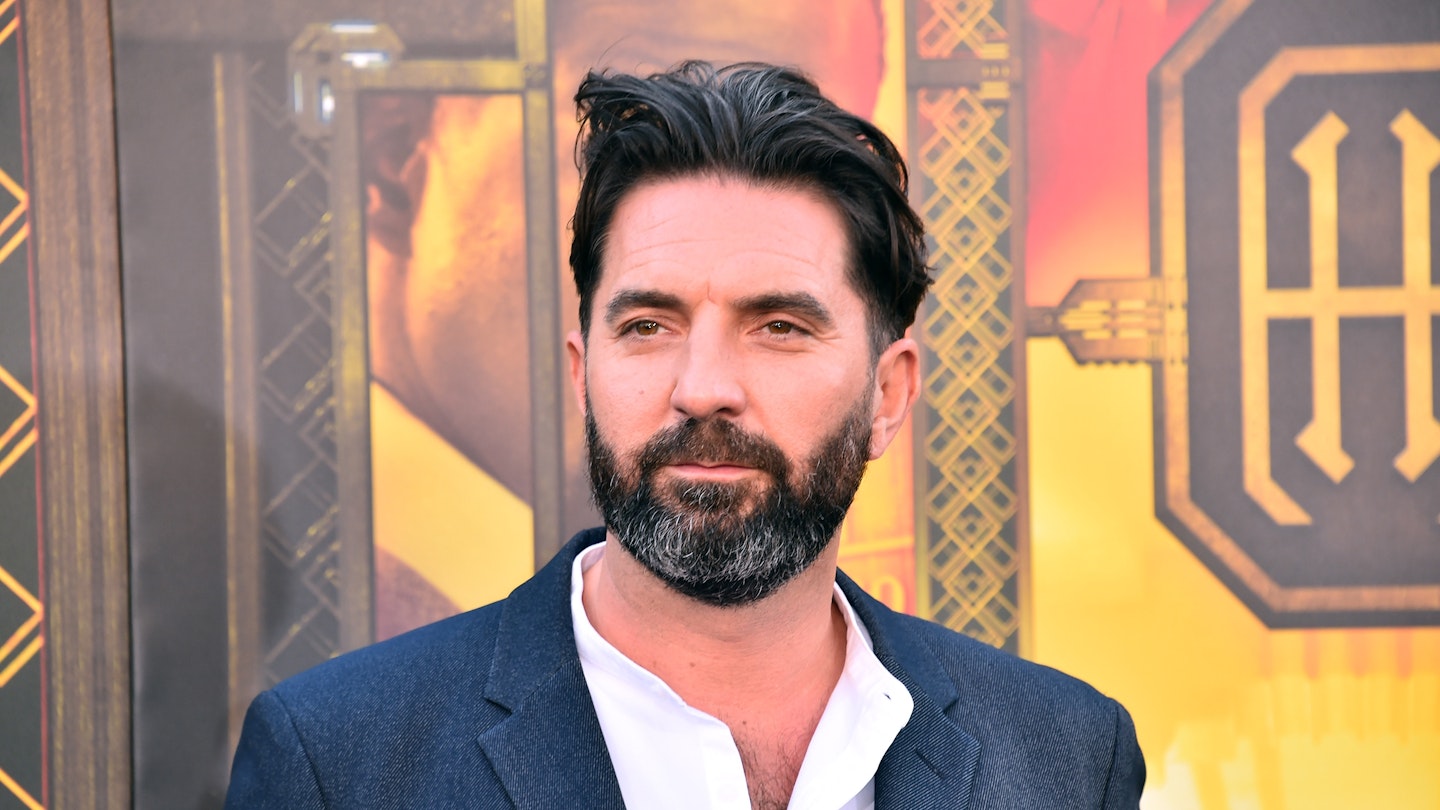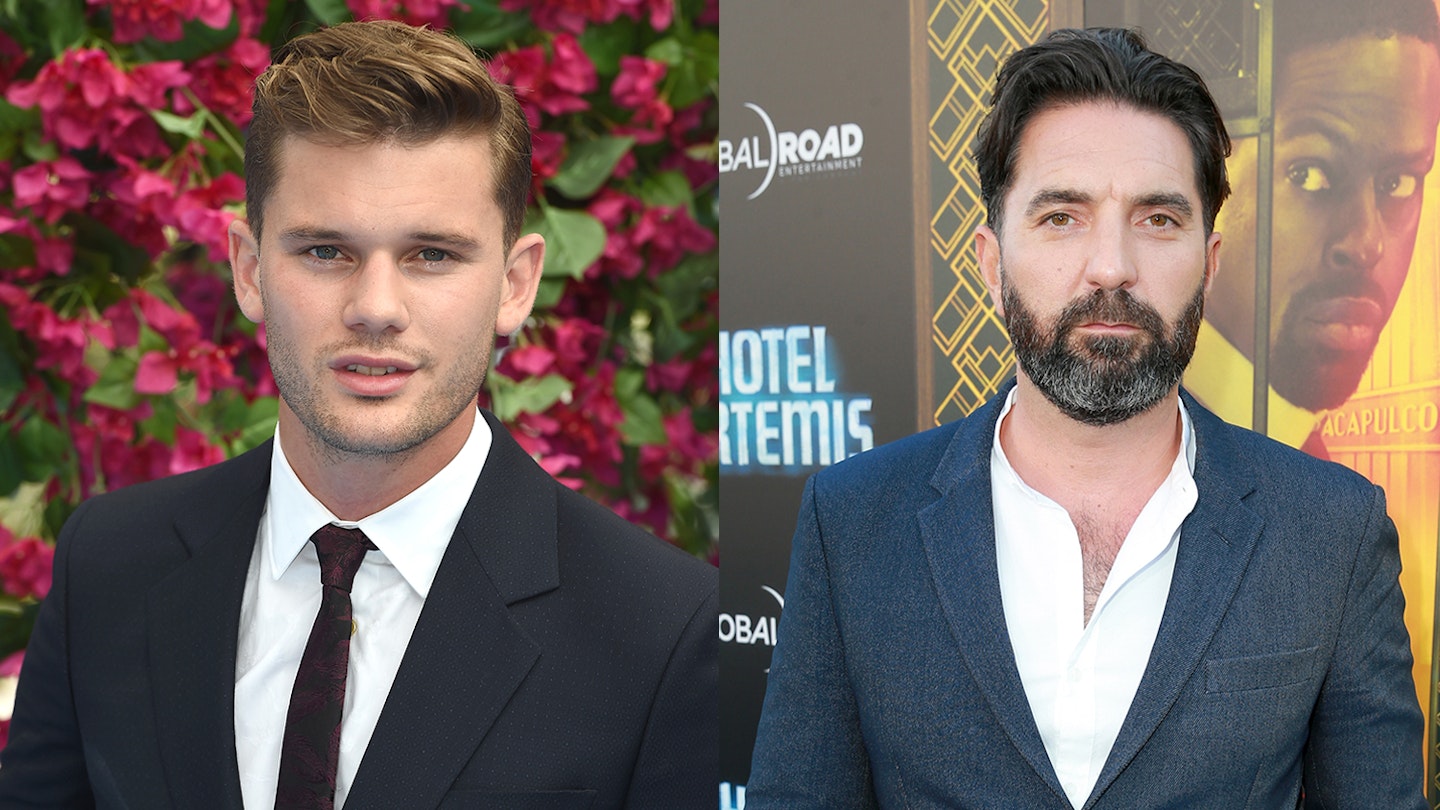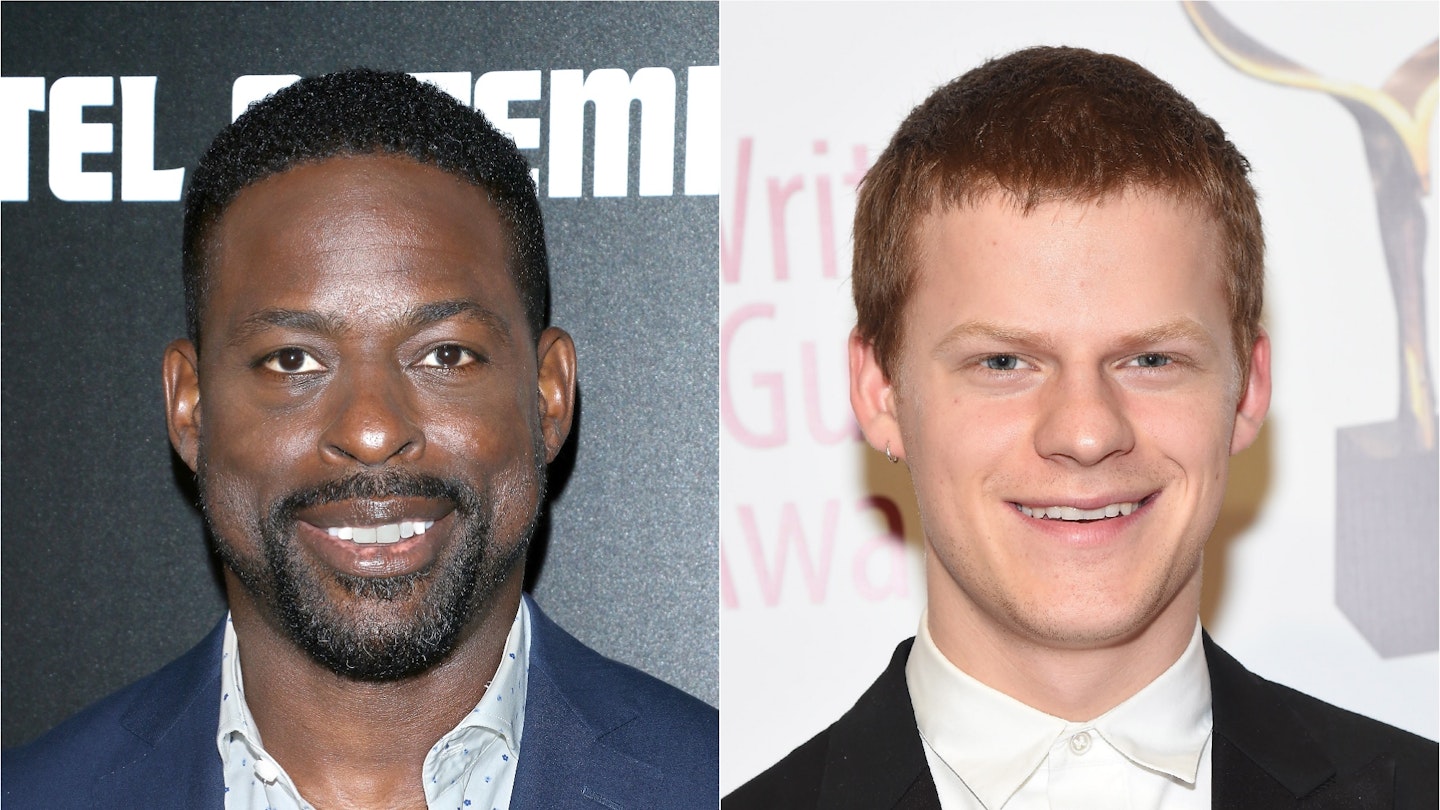The future may not be written, but Drew Pearce’s directorial debut predicts dire consequences for continuing down our current path. Set a decade from now, the post-Trump America of Hotel Artemis is not a happy place. The wall is up, and drought has returned to California, leading to a future where clean water supplies are privatised. The rich have it, the poor do not — and so begin the worst riots LA has ever witnessed.
Far above the violence on the streets is the Hotel Artemis — a once grand palace of golden age Hollywood hospitality, now a members-only hospital for criminals run by ‘The Nurse’ (Jodie Foster) and her orderly/heavy Everest (Dave Bautista). Tonight’s guests: bank-robbing brothers Waikiki (Sterling K. Brown) and Honolulu (Brian Tyree Henry), assassin Nice (Sofia Boutella) and arms dealer Acapulco (Charlie Day).
Jodie Foster gives a performance to treasure — tough on the surface, but conveying an unshakeable sadness.
The film’s greatest strength is its setting. The penthouse floor the hospital occupies is rich with the atmosphere of the hotel’s faded glory — blood-stained cushions bear its Art Deco logo, while now-grimy murals depict 1920s holiday destinations that evoke a dystopian future where people yearn for better days long past. And it’s in this heady ‘locked room’ scenario its guests are forced to exist and interact, safe from the rioting down below (but perhaps not each other). All have secrets and hidden agendas, not all of which are compatible. It’s with these exchanges in this confined space that Hotel Artemis is at its most compelling — uneasy truces keep the peace, but it’s not one that’s likely to last.
And, of course, it doesn’t. Injured and inbound is the hotel’s owner — crime lord the Wolf King of LA (Jeff Goldblum). Outwardly charming (of course — how could Jeff Goldblum be anything but?), he’s not a man to be tangled with, which makes life difficult for the brothers, who swiped $17 million-worth of diamonds from him earlier in the day. (The punishment for stealing from him? Death. No exceptions.) It’s his impending arrival that fuels much of the tension — not least because his son and various cronies are angrily camped outside the security door to “reserve” the final hospital room, negating the ‘first come, first treated’ rule. And while it’s not a film that’s heavy on action, it’s proficiently realised when it comes.
And then there’s Jodie Foster. An all-too-rare screen presence, she gives a performance to treasure — tough on the surface, but conveying an unshakeable sadness as The Nurse continues to mourn her long-dead son. Tied to the hotel by her agoraphobia, she exists solely amidst the hotel’s decaying interior as she longs for the happier days of her past. The beating heart of the film, Foster provides depth and pathos, and is a vital counterpoint to the noisy criminality that exists around her.
There are problems: when properly scrutinised, not all the points of conflict hold up (how would the Wolf King actually know the brothers had his diamonds?) and some characters don’t quite get the pay-offs they deserve. But it’s still a thrilling, original film, oozing with style, that deserved far better than its dismal showing at the US box office.
